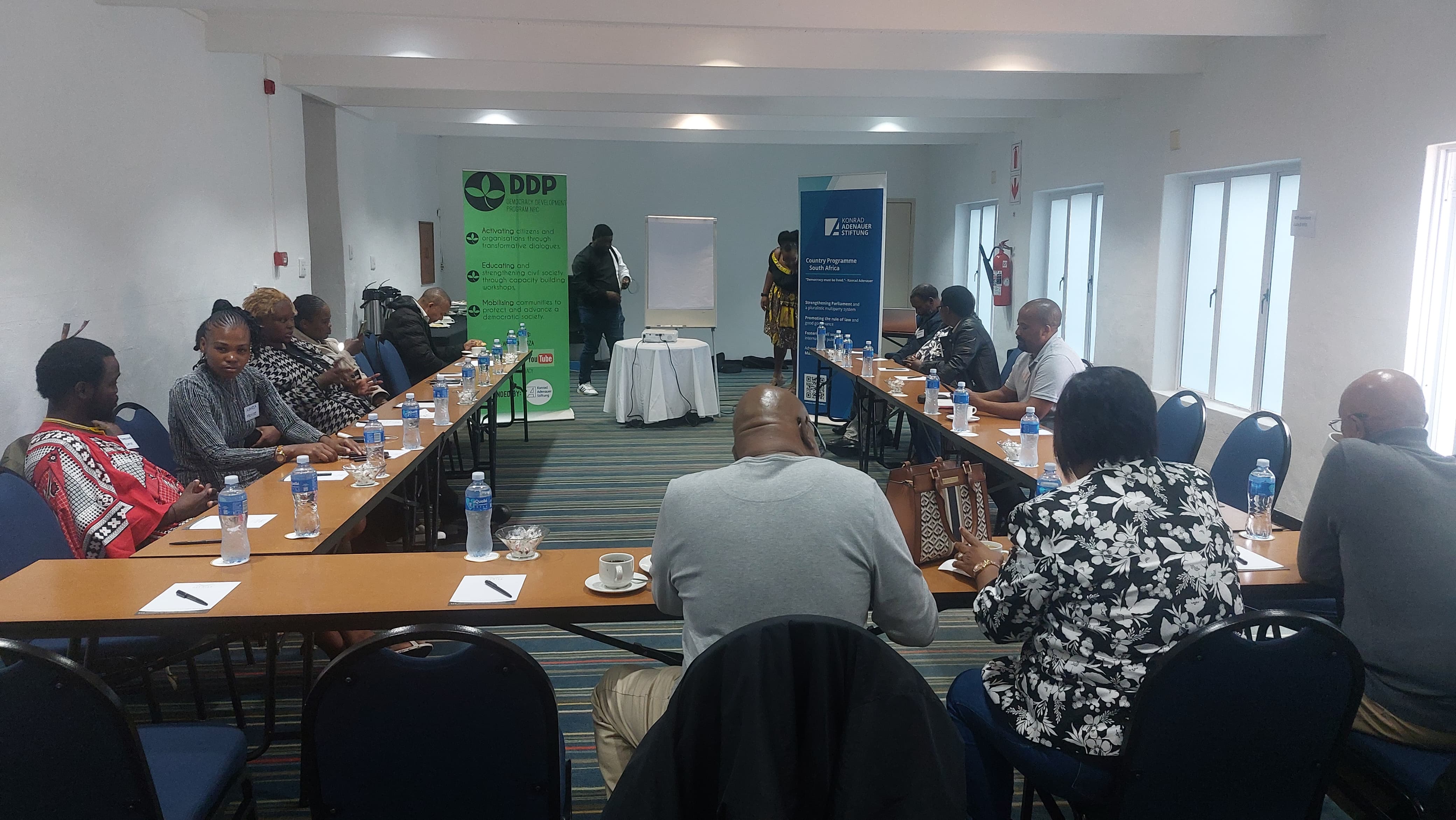Bridging Tradition and Law: Combating Gendered Corruption

The Democracy Development Program (DDP) recently hosted a pivotal workshop aimed at integrating legal frameworks with traditional practices to address gendered corruption. This event underscored the disparities between established legal standards and traditional customs, which can be exploited by those in power, leading to human rights violations.
Theme:
Integration of Legal Frameworks and Traditional Practices: Tackling the manipulation of customs by perpetrators of gendered corruption and ensuring alignment with constitutional principles of equality, human dignity, and freedom.
During the workshop, participants explored key concepts such as consent, corruption, gendered corruption, and abuse of power, contextualized within their community roles and experiences. Engaging in discussions about case law and legal frameworks, they identified conflicts with cultural customs and sought to uncover root causes of the issues, differentiating between the misuse of power and problematic traditions.
Participants collaboratively developed solutions to the challenges identified, with the goal of implementing these strategies within their communities. Key attendees, including AmaKhosi and iNduna, gained insights into laws related to gendered corruption, as well as important concepts like consent, statutory rape, sexual harassment, and coercion.
The workshop fostered strengthened cooperation between traditional practices and legal frameworks. Initially targeting traditional leaders, the initiative expanded to include ward councillors, representatives from the Nazareth Baptist Church, media personnel, and community leaders.
This workshop marked a crucial step towards harmonizing tradition with legal standards, ensuring the preservation of cultural practices while upholding human rights and equality.